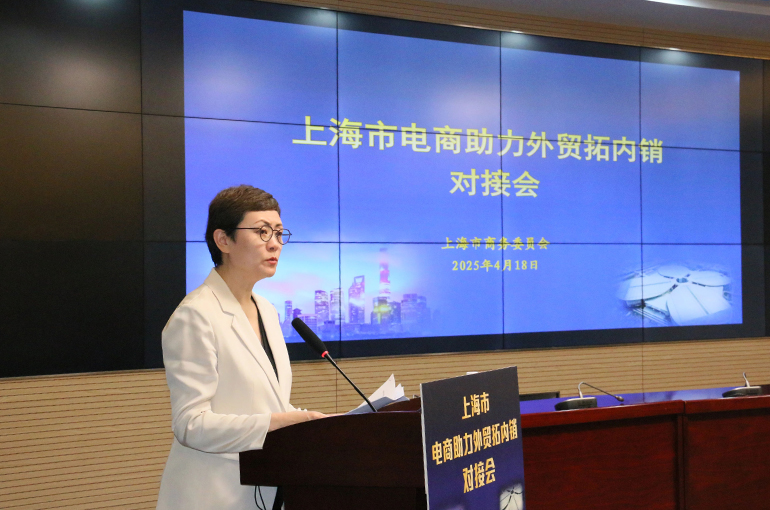 Shanghai Holds Two Big Networking Events in 10 Days to Help Exporters Enter Home Market
Shanghai Holds Two Big Networking Events in 10 Days to Help Exporters Enter Home Market(Yicai) April 29 -- Shanghai has held two major networking events within 10 days of each other to help Chinese exporters pivot to the domestic market following the global tariff chaos unleashed by the US government.
Organized by Shanghai’s commerce department and hosted by Bailian Group, a Shanghai-based retailer, the latest event brought together major local shopping malls and supermarkets and nearly 80 exporters yesterday. Many of the parties involved reached initial agreements.
The city government said during the first event on April 18 that it has linked arms with major e‑commerce platforms and retail groups to provide policy consultations, updates on standards changes, product testing, and certification services for exporters so as to lower the costs for those seeking to sell in the home market.
“We’ve already connected with over 30 foreign trade companies,” said Cai Xiaojing, deputy general manager of Bailian. She noted, for example, that it is working with a denim clothing company in Guangzhou, which exports over 80 percent of its products to the United States. The goal is to leverage Shanghai's annual May 5 shopping festival to get the brand on shelves in Bailian’s stores and unlock domestic market opportunities, Cai said.
The shopping festival, organized by the city government, is a major promotional campaign that engages commercial districts, specialty shopping streets, businesses, and brands in various marketing activities to drive consumption. During the upcoming sixth gala, local shopping malls and supermarkets will also host networking events for Chinese exporters of premium goods.
Lianhua Supermarket has opened a fast-track channel to help exporters navigate domestic sales more easily in light of tariff challenges, said Jin Lan, who heads the Shanghai-based firm's food and general merchandise procurement department. Businesses can register through official QR codes, mini-programs, and other means. One fresh produce company had its products on store shelves within a week of applying, Jin added.
Wu Haifeng, GM of Tianguo Biotechnology, who came from Jiangsu province to attend the event, said that more than 90 percent of its products are exported from the city. Hit by high US tariffs, the company’s exports to America have almost stalled, while some raw materials are going to waste, Wu added.
To adapt, Tianguo Biotech is working with major Chinese platforms to shift its product focus from exports to local sales and is developing products tailored to local market needs. Wu described this pivot as both a form of self-rescue and a fresh start, adding that at the same time, the business is working to diversify its international markets.
Government departments including the Shanghai Municipal Commission of Commerce and the Municipal Market Supervision Bureau were also present at the latest networking event to promote policies aimed at expanding domestic sales channels and distribution networks, reducing costs for exporters pivoting to the domestic market, and enhancing their local operational capacity.
Representatives from several malls and supermarkets also shared support measures for helping exporters shift to home market sales.
Bailian has set up a dedicated sales transition task force to leverage its network of over 40 member companies across China and multi-channel platforms to boost domestic sales and consumption.
Freshippo, the grocery chain owned by Alibaba Group Holdings, has also opened a fast-track channel for exporters, offering 24-hour service for onboarding and negotiations, simplified certification and review processes, and shorter product listing timelines to help exporters quickly reach Chinese consumers.
Editor: Martin Kadiev